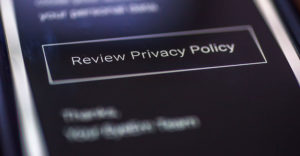Microsoft on Tuesday announced a new Windows 10 upgrade policy — weeks after losing a US$10,000 case in a small claims court.
The owner of TG Travel Group in Sausalito, California, last month won a final judgment after she alleged that her computer was upgraded to the new operating system without prior authorization, according to court documents.
The case was a high-profile example of customer dissatisfaction with the Windows 10 upgrade process. Many felt Windows 10 had been thrust upon them without their consent, and they complained that the uninstall process was nearly impossible to execute.
Get It While It’s Free
“The new experience has clearer options to upgrade now, choose a time or decline the free offer,” said Terry Myerson, executive vice president of the Windows and Devices Group.
If the red X is selected, it will dismiss the dialog box, and the company will notify the device again in a few days, he said.
Microsoft will continue to recommend Windows 10 installation until the free upgrade period expires on July 29, Myerson added.
“Thousands of engineers have been working on making Windows 10 the most secure version of Windows, helping to protect people from viruses, phishing, identity theft and more,” he said. “We’d like our customers to upgrade and improve their experience with Windows and Microsoft.”
System Failure
Teri Goldstein, CEO of TG Travel, alleged in her January filing that she had been using Windows 7 on her computer in August 2015 when it was chosen at random as a beta user for a Windows 10 upgrade. The update froze her system, and she spent months trying to get it fixed through Microsoft technical support.
The MS Task Force began to remotely uninstall and reinstall her operating system on a daily basis, Goldstein said, and she later got error messages saying she was an unrecognizable user. At the time, Microsoft did not have the ability to remove Windows 10 upgrades from systems that previously were running Windows 7, according to court documents.
During a seven-month period of attempting to fix the problem, Goldstein repeatedly was passed along to different Microsoft reps, some of whom were extremely rude, she said. One of the reps tried to offer her $150 to go away. By that time she had lost so much business that she resorted to legal action.
She filed suit in Marin County Superior Court citing the California Uniform Commercial Code, which holds that all products and services sold in the state have an implied warranty to be fit for purpose.
“Microsoft needed to be held accountable for its negligence regarding the forced Windows 10 upgrade, which rendered many users computers useless,” Goldstein told the E-Commerce Times.
Sensitive Timing
Microsoft filed notice to appeal the ruling in April, but abandoned the appeal on May 12. The satisfaction of judgment was filed on May 24.
Microsoft “dropped its appeal to avoid the expense of further litigation,” said company spokesperson Sophia Brockman.
News of the suit’s outcome came in the midst of Microsoft’s aggressive promotion of free Windows 10 upgrades through July 29.
Perceived consumer reluctance to upgrade might be tied to a trend toward using tablets or mobile phones for email and watching video, and using cloud-based systems to handle word processing, spreadsheets and more complex applications.
However, Microsoft early last month announced that Windows 10 was running on 300 million active devices, and noted that the free upgrade period would be coming to an end. After July 29, the upgrade will cost $119.00.
Loss of Trust
Microsoft’s upgrade policy not only was wrong from an ethical standpoint, but also risked creating long-term damage with its customers, according to technology analyst Jeff Kagan.
“Microsoft is burning their relationship with so many customers it’s hard to see any value,” he told the E-Commerce Times. “The big question to me has always been why is Microsoft cutting its nose off to spite its face?”
Many customers have grown tired of dealing with Microsoft and have defected to Apple or Linux, he said.
Microsoft’s aggressive stance on Windows 10 upgrades was due to the “resistance it experienced around XP,” said Charles King, principal analyst at Pund-IT.
A large number of XP users refused to upgrade to Windows Vista for years, in part due to the new OS’ “abysmal performance,” he told the E-Commerce Times.
“Microsoft obviously wants to avoid similar situations this time around and believes that Windows 10 offers superior performance and security than other versions of Windows,” King said. “Its initial approach to upgrading older systems was opaque and underhanded, but things have improved considerably over the past six to eight months.”





















































Windows 10 is terrible. It force me to upgrade from Windows 8. I have used 1 month and I can not open start menu now. Unable click any icon in taskbar now.